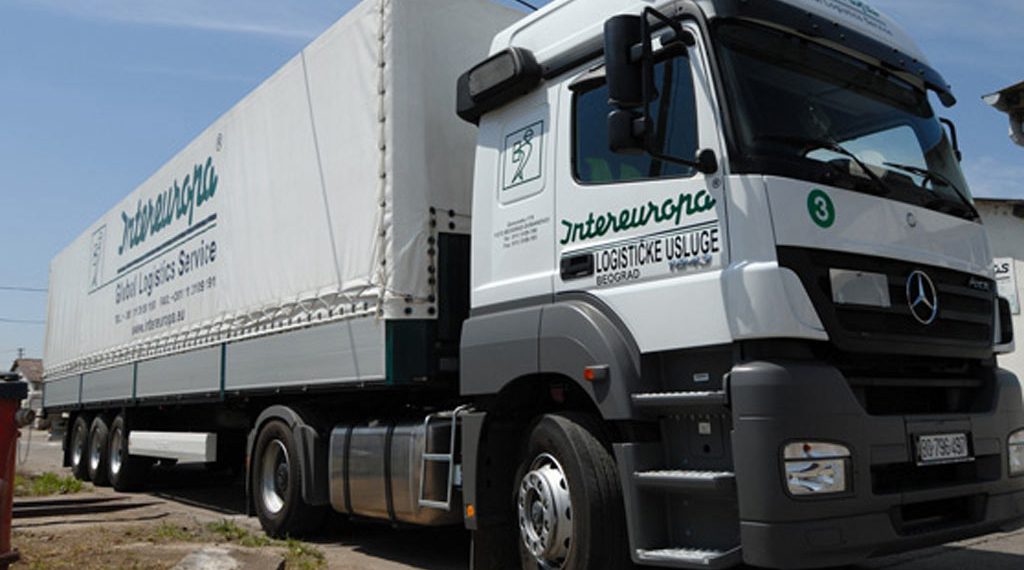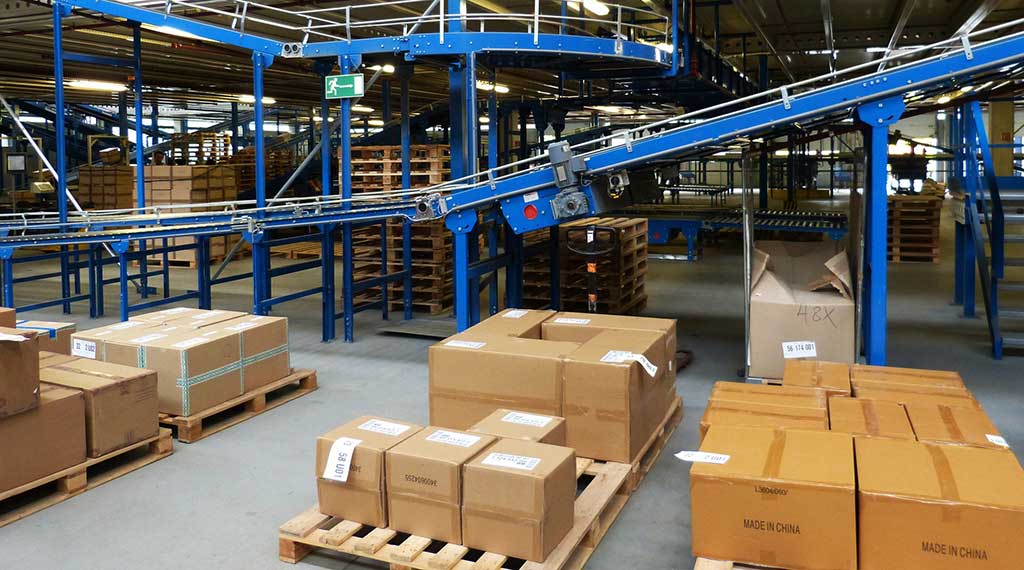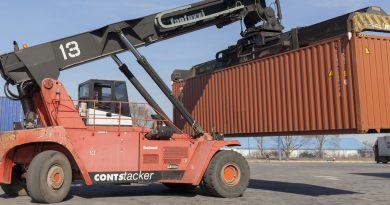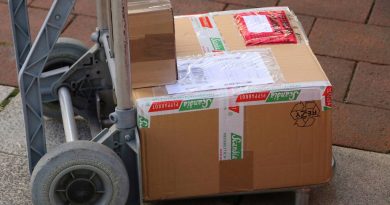General Manager of the Post of Slovenia, Boris Novak – Serb market one of the most important for development of the logistics sector
By purchasing Intereuropa last year, the Post of Slovenia Group made a strong entrance into the logistics services market. This acquisition led to them becoming one of the largest logistics systems in Slovenia, with plans to become “the leading provider” across the Southeast Europe region. Immediately before the coronavirus outbreak, it was announced that the goal of the Post of Slovenia Group is to generate 60% of revenue from logistics and parcel services in the next five years, which would compensate for earnings obtained from traditional postal services – a segment that is declining globally.
In an exclusive interview for PlutonLogistics.com, the General Manager of the Post of Slovenia, Boris Novak spoke about the impact of the pandemic on the Group’s plans, its most significant investments, the importance of the Serb market, as well as trends in the postal and logistics services around the world.
PL: When we were first setting up this interview back in February, no one could have guessed the events that followed. How did the corona crisis affect the operation of the Post of Slovenia during the past months? Have the plans for 2020 been jeopardized?
– The Post of Slovenia responded rapidly to the circumstances created by the coronavirus pandemic, and despite often very difficult conditions we succeeded in ensuring the smooth flow of mail, parcel and other services. The drop, by almost half, in letter mail and services in the business network during this time markedly reduced our income, especially in letter mail. In the period from the beginning of the pandemic up to the end of April 2020 revenues fell by around 23 percent compared to pre-pandemic operations. Given the consequences of the coronavirus pandemic and the measures tied to it, we set about revising the business plan for 2020.
Despite this, the Post of Slovenia Group will still carry out its planned projects and activities. When upgrading existing services and developing new services, we follow global trends, best practices and the needs of users, both as addressees and senders, to ensure the requisite level of quality. New transactions are planned in the areas of logistics services (warehousing, commissioning of goods, expansion to new markets and sectors, etc.), supply chains and logistics for foodstuffs. We are also steering additional development activities in this direction.
Now that we have completed the purchase of the company Intereuropa, by integrating the Intereuropa Group, the Post of Slovenia Group is set to become one of the largest logistics companies in Slovenia, and aims to become a leading provider of integrated logistics services across the wider Southeast Europe region.
Aside from the integration of Post of Slovenia and Intereuropa, key projects are focused on expanding spatial and transport capacities for parcels and logistics operations, computerising operations, overhauling the services portfolio (parcels, range of products at post offices and IT systems), automation and digitalisation of operations.
PL: During 2019, you made a big step by purchasing Intereuropa and making a strong entrance into the logistics services market. At the beginning of this year, the ambitious Group’s Strategy Development Programme 2025 was presented, in which, among other things, the focus was placed on the logistics segment. Tell us a little more about it.
– The Strategy Development Programme represents an umbrella strategic document of the Post of Slovenia Group that defines its growth and development up to 2025. The Post of Slovenia Group is focused mainly on parcel and logistics services in Slovenia and around the region, where we seek to offer the latest competitive services and become the first choice for buyers, especially within Slovenia, but also in the wider area.
We are therefore shifting away from the role of a traditional national postal operator, and entering global markets with strong competition, in the logistics sector, which represents the backbone of the global economy.
The Strategy Development Programme also includes the Intereuropa Group, which has been majority-owned by the Post of Slovenia since the end of 2019. In recent years the largest growth in revenues has come from parcel services and logistics services. The share of parcel and logistics services in Post of Slovenia Group business is increasing rapidly, and by 2025 it should account for around 60 percent.
The Post of Slovenia Group is growing into an increasingly important international company that will have a presence with its logistics and parcel services principally in the wider region of Southeast Europe, and will make a major contribution to the further growth of the entire Group. We therefore see our future in parcel operations and logistics, which together with letter post, IT services and sales at post office counters make up our most important strategic business segments. In all these areas, in addition to operational excellence, it will be crucial for us to digitalise and automate operations to the greatest extent possible. Only in this way can we remain highly competitive and become the first choice for our customers in using postal and logistics services. Our plan is for income in 2025 to reach almost twice what it was in 2019.
Logistics services and parcel operations are services related to postal services. This path of linking together postal, parcel and logistics services has been taken by many postal operators around the world.
PL: How did Intereuropa operate during the pandemic?
– During the pandemic the Intereuropa Group has been closely monitoring current events in Slovenia and around the world, and has done everything necessary, in accordance with the measures laid down by the competent institutions and the recommendations of experts, to protect the health of employees and business partners, and to ensure the business continuity of all Group companies.
Operations were adjusted to the situation in the countries where the Intereuropa Group provides services, while carrying out all the key activities to meet the needs of customers. Even in these difficult conditions, they were ensuring the flow of goods along the entire supply chain, which in Slovenia, where Intereuropa d.d. is the largest logistics company with a comprehensive range of services, is crucial for the continuous functioning of those chains in extraordinary conditions.
In the same way, despite the current extraordinary situation, the Intereuropa Group companies continued to provide comprehensive logistics services for companies in manufacturing, trade and other sectors through its own network of twelve subsidiaries in Croatia, Bosnia and Herzegovina, Serbia, North Macedonia, Montenegro, Kosovo, Albania and Ukraine.

PL: To what extent will the integration of Intereuropa change the relations in the structure of the service portfolio of the Post of Slovenia Group and what part of the revenues was projected when it comes to logistics services? How much revenue is expected in 2020?
– Following the acquisition of Intereuropa, the Post of Slovenia Group has focused mainly on parcel and logistics services, where we seek to offer the latest competitive services and become the first choice for buyers, especially within Slovenia and in neighbouring markets.
We are planning for the Post of Slovenia Group together with Intereuropa to generate 49 percent of its income in 2020 from logistics and parcel services, which in terms of the comparative share of these services in total revenues ranks us alongside the most advanced postal operators in the EU. For 2020 together with Intereuropa we are planning for around EUR 400 million in income.
On the acquisition of the IE Group, the structure of the Post of Slovenia Group services portfolio changed. In 2017 a full 79 percent of income was generated from postal services, which are declining, and now we will be keeping pace with comparable trends at other operators.
This is a business segment that is predicted to experience long-term growth in the future.
PL: You announced major plans to expand in the regional markets of Southeast Europe. Tell us a little more about it.
– I should point out that the Post of Slovenia has been present for years in the markets of SE Europe, both through bilateral agreements for the provision of postal services and also through its subsidiary PS Logistika, which provides logistics services. By acquiring a majority share in Intereuropa, Post of Slovenia embarked on optimising the provision of postal and logistics services in the Post of Slovenia Group, in new markets and new countries in the region, where to date the Post of Slovenia Group has not had a presence.
We are planning in particular for synergies in supplying buyers and markets via the entire delivery chain. We see the positive effects of integration mainly in the prospect of customers having a solution for their parcel and logistics needs all in one place, and in the support of the sales staff with their wide-ranging professional skills. Customers are offered an expanded selection of services, which we will upgrade through solutions for complex logistical needs (e.g. supply chain services), along with simplified access to new markets and countries in SE Europe.
PL: At the beginning of the year, it was announced that the Post of Slovenia would acquire 100% ownership of the company Intereuropa Dobanovci. What are your plans for Serbia and how important is our market?
– The takeover bid is concluded, as is evident from the publicly posted information, and Intereuropa and Post of Slovenia hold 98.11 percent of all the shares of the company A.D. Intereuropa logističke usluge Beograd.
There is no doubt that your market is one of the more important markets in planning growth and development in the logistics sector for the Post of Slovenia Group in Southeast Europe, and consequently the Post of Slovenia Group has a quite rational purpose for acquiring a 100-percent equity stake in A.D.Intereuropa logističke usluge Beograd.
The Serbian market represents one of the markets with the greatest potential where the Post of Slovenia Group has a presence through Intereuropa. In the Serbian market the company A.D. Intereuropa Beograd has a tradition going back more than 60 years in providing comprehensive logistics services. We see additional potential for growth in the majority of markets where Intereuropa is already present through its subsidiaries, i.e. in the markets of the former common state, as well as in expansion to the other markets of Southeast Europe.
PL: The planned investments are also part of the Post of Slovenia Group’s Strategy Development Programme 2025, which has garnered a lot of attention. What are the most significant projects you will invest in?
– Another important condition for long-term effective growth, development and business performance of the Post of Slovenia Group is investment. Up to 2025 we are planning investments in the development of the parcels, letters, logistics and IT services segments, to improve the user experience of buyers and employees and boost our presence in the markets of Southeast Europe.

Here it will be important to introduce new technologies along with automation, digitalisation and robotisation in postal logistics centres and in postal traffic. At the same time we are planning to expand and modernise the capacities of our logistics network, both spatial and in transportation, where a major portion will be allocated to additional transhipment capacities and the e-mobility segment. I should also mention the comprehensive modernisation of IT systems, where the biggest investments are being made in introducing IT support for logistics processes and optimisation of the business information system.
Another factor I should highlight is sustainable development and the energy-efficiency of buildings and equipment, along with the electrification of the vehicle fleet, with the aim of reducing our carbon footprint, increasing the proportion of energy consumed from renewable sources, saving on energy products, fuel and water and maintenance costs, and the humanisation of work.
PL: We are witnessing the fact that the pandemic, more than any sort of marketing, affected the accelerated development of online commerce in markets where this was not the case before. In Serbia, for example, online shopping doubled during the state of emergency, and it is estimated that these trends will continue after the crisis. What is your stand on the position of your Group in light of the growing development of e-commerce?
– Due to the measures tied to the coronavirus pandemic, Slovenia also experienced a considerable growth in online purchasing.
At Post of Slovenia the number of parcel shipments in the month of April 2020 stemming from growth in online shopping (the B2C segment) and measures implemented for contactless delivery increased by more than 20 percent relative to the period prior to the measures to contain coronavirus, while year-on-year in the period April 2020/2019 Post of Slovenia has recorded a more than 30-percent rise in parcel shipments.
We anticipate that the growth in parcel shipments due to the increasing trend of online shopping will continue in the future.
Viewed globally, the fact that the B2C quantity of parcels has jumped in the short term, by more than 40 and even by more than 50 percent, is an immediate effect of the period of the coronavirus pandemic. The forecast for 2020 is +26-percent growth compared to the more than 15-percent and more than 17-percent growth prior to the crisis. Our expectation is for the growth rate to return to the pre-crisis level by 2023.Online penetration will grow by 5 to 8 percent compared to the period before the crisis, due to the retention of altered patterns of behaviour in the so-called “new normality”.
Author: Milica Milosavljevic





